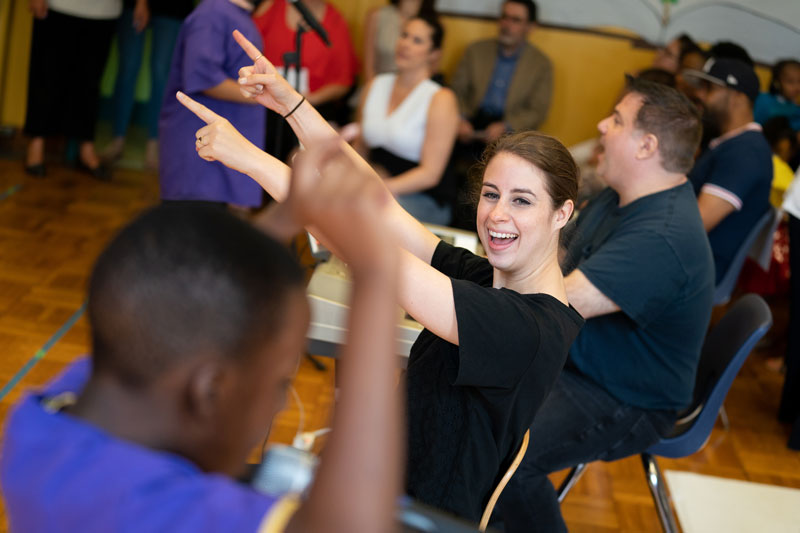
Kimberly Olsen is the executive director of NYC Arts in Education Roundtable, which has a membership of more than 100 cultural organizations. It received a $250,000 grant from The Trust’s NYC COVID-19 Response & Impact Fund and a $215,000 grant from The Trust’s competitive grants program.
“Last March, our world changed. As city school buildings closed, arts education was impacted almost instantaneously. Our community was disconnected from the schools and students with which they were working. We found that not only did many arts educators lose their jobs, but those who had jobs required an entirely new skill set.
New York City’s Department of Cultural Affairs reported arts education organizations lost 78 percent of their artist staff, approximately 2,100 teaching artists. We realized we had to do something. We came to The New York Community Trust to establish a relief fund to give financial support to a highly specialized workforce that does incredible work, but that we are at a severe risk of losing.
I can’t say enough about just how amazing it was to work with The Trust, and how swift and responsive they were. Along with other donors, we were able to create an emergency fund of $333,500 for arts educators. We received way more applications than we anticipated, nearly 800. Almost 80% of those people had been furloughed or laid off, and almost 85% estimated their 2020 income would be under $30,000, which is below the poverty threshold in NYC.
STUDENT BENEFITS
We’re hearing that students are logging in to participate in arts classes, saying, ‘I came today because I knew we would be doing dance,’ or, ‘I came because I would be able to connect with my friends.’
One of the most magical things about the arts is that it engages students in building relationships. It gives them an authentic place to process their emotions, and what’s happening in the world around them. It gives them a creative outlet for joy and happiness and physical fitness. The skills they learn contribute to their becoming creative citizens who are able to think critically, to speak passionately, to take risks. All of these are foundational elements of the arts that we can’t lose now.
CREATIVE SOLUTIONS
We also hosted a series of professional development trainings on topics like bridging arts and advocacy in the classroom and trauma-informed best practices in arts learning. We’re seeing hundreds of people log in for our workshops each week. It’s just been truly remarkable to see the creative solutions to digital arts learning that educators are pioneering.
People are really experimenting with the many ways they can use technology to keep us connected at a time that we feel so siloed. For example, we’re seeing educators stage innovative Zoom-musicals or organizations engage communities in intergenerational artmaking, where young people and seniors are creating art together online.
Unfortunately, we’re seeing that many teaching artists are still out of work, and that organizations are struggling to reach students. But in those moments where folks were able to connect with students, there has been so much joy, hope, and excitement. There are these great moments of inspiration at a time when it’s so vitally needed.”